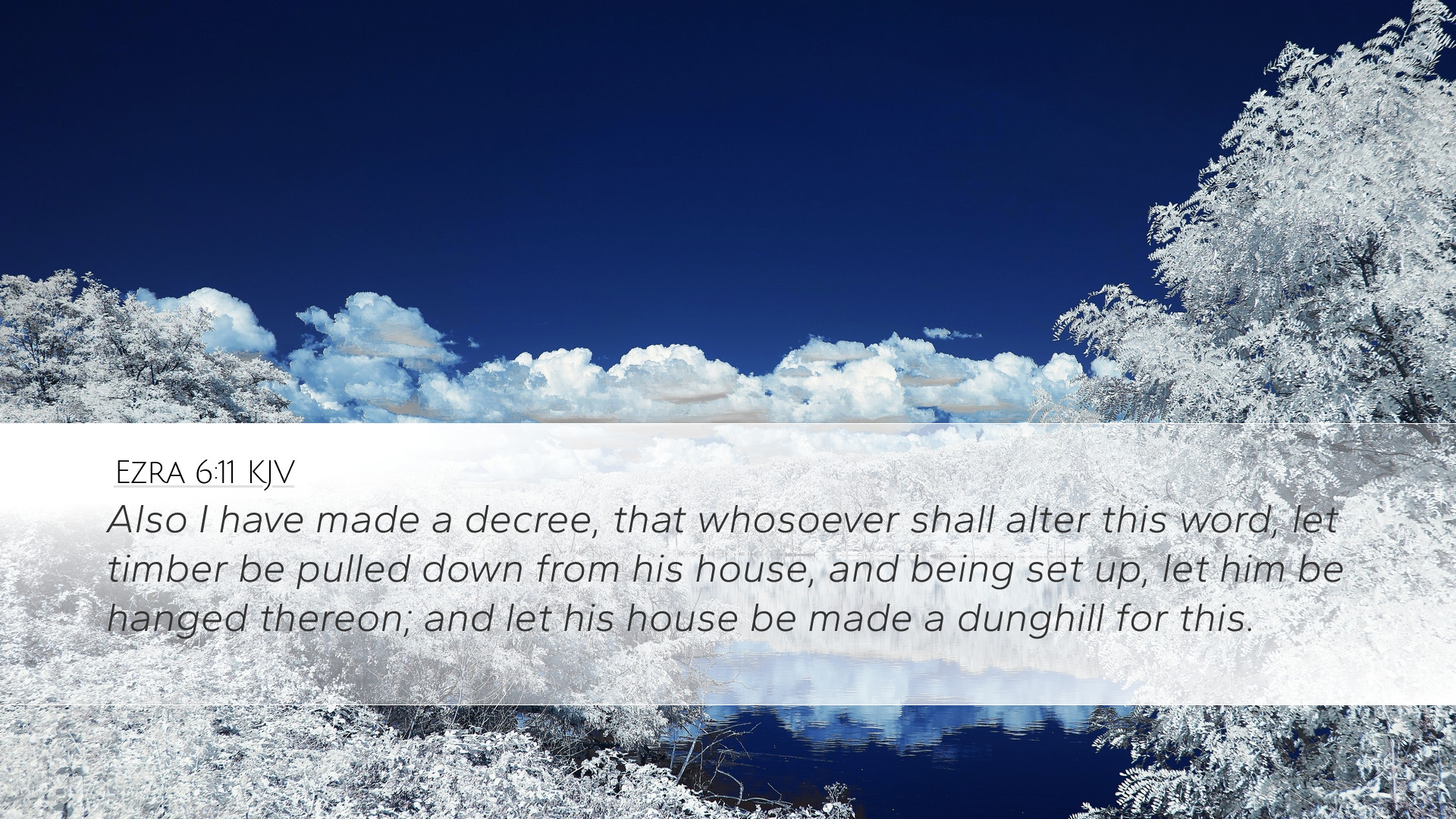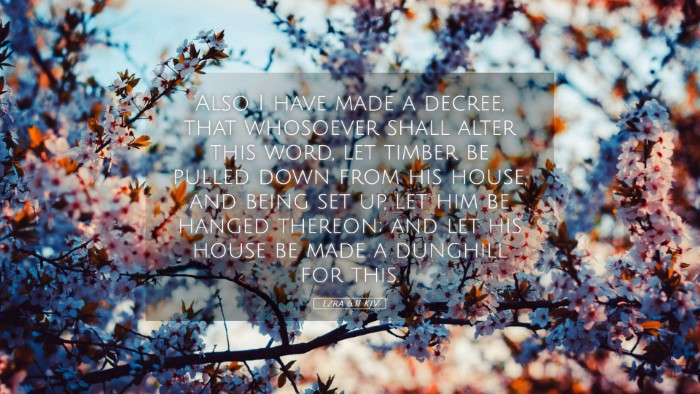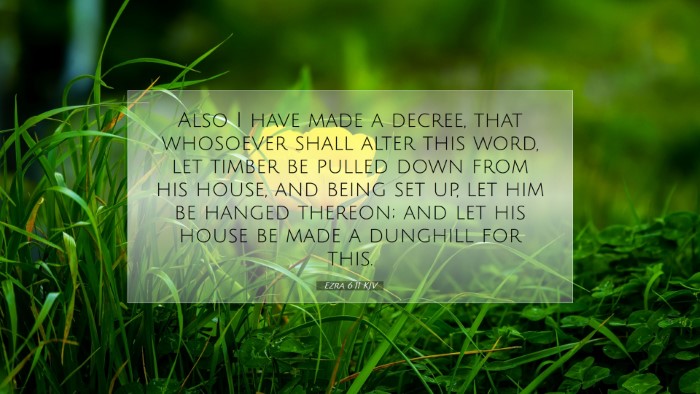Old Testament
Genesis Exodus Leviticus Numbers Deuteronomy Joshua Judges Ruth 1 Samuel 2 Samuel 1 Kings 2 Kings 1 Chronicles 2 Chronicles Ezra Nehemiah Esther Job Psalms Proverbs Ecclesiastes Song of Solomon Isaiah Jeremiah Lamentations Ezekiel Daniel Hosea Joel Amos Obadiah Jonah Micah Nahum Habakkuk Zephaniah Haggai Zechariah MalachiEzra 6:11
Ezra 6:11 KJV
Also I have made a decree, that whosoever shall alter this word, let timber be pulled down from his house, and being set up, let him be hanged thereon; and let his house be made a dunghill for this.
Ezra 6:11 Bible Commentary
Commentary on Ezra 6:11
Ezra 6:11 (ESV): "Also I make a decree that if anyone alters this edict, a beam shall be pulled out of his house, and he shall be impaled on it, and his house shall be made a dunghill."
Introduction
This verse stands as a solemn decree by King Darius concerning the rebuilding of the Temple in Jerusalem, underscoring the seriousness with which the Persian king approached the revitalization of the Jewish worship and community life.
Contextual Background
To fully appreciate Ezra 6:11, it is vital to understand its historical and theological context. After the Babylonian exile, the Jews faced enormous challenges in reestablishing their identity and worship practices. The decree of Darius signifies divine favor, assuring the exiles that their project is aligned with God's purpose.
The Authority of Darius
According to Matthew Henry, Darius's decree reflects the sovereign authority wielded by Persian kings, yet it's important to note that this authority was used to endorse God's work among His people. Darius expresses a clear expectation that those who oppose this divine initiative will face severe consequences.
The Severity of the Decree
The harshness of the punishment stated by Darius serves multiple purposes:
- Preservation of Order: Given the history of resistance against the rebuilding efforts, such a decree was meant to deter any sabotage or interference.
- A Divine Mandate: As pointed out by Adam Clarke, the severity underscores the idea that this work is not merely a civil endeavor but a divine mandate, making it all the more significant to adhere.
- Public Witness: The enforced consequences acted as a public witness to the seriousness with which the rebuilding project was to be regarded.
Theological Implications
This verse elicits several theological reflections:
- God’s Sovereignty: Albert Barnes asserts that even pagan rulers can inadvertently fulfill God’s plans. The decree is a testament to God's sovereign governance over history.
- The Covenant Community: The protection of Jerusalem's rebuilding signifies God's faithfulness to His covenant people, ensuring that His promises are realized.
- The Role of Authority: The serious consequences reveal the role of authority in promoting divine purposes and the dire risks of opposing God’s ordained work.
Practical Applications
For pastors and church leaders, Ezra 6:11 serves as a call to uphold the integrity of God's work:
- Commitment to Divine Work: Leaders should be committed to fostering environments where God's work is prioritized and respected.
- Caution Against Opposition: Understanding the seriousness of opposing God’s work can engender a sense of caution, encouraging leaders and congregations to align themselves with divine purposes.
- Encouragement in Trials: When faced with opposition, believers can draw strength from the example of the Israelites, knowing that God’s will ultimately prevails.
Conclusion
Ezra 6:11 encapsulates a profound message on the necessity of faithfulness to God's covenant and the seriousness of divine work in the world. As leaders and believers navigate their respective roles, they are reminded that God’s plans will not be thwarted, and that fidelity to His calling is both paramount and rewarded.


